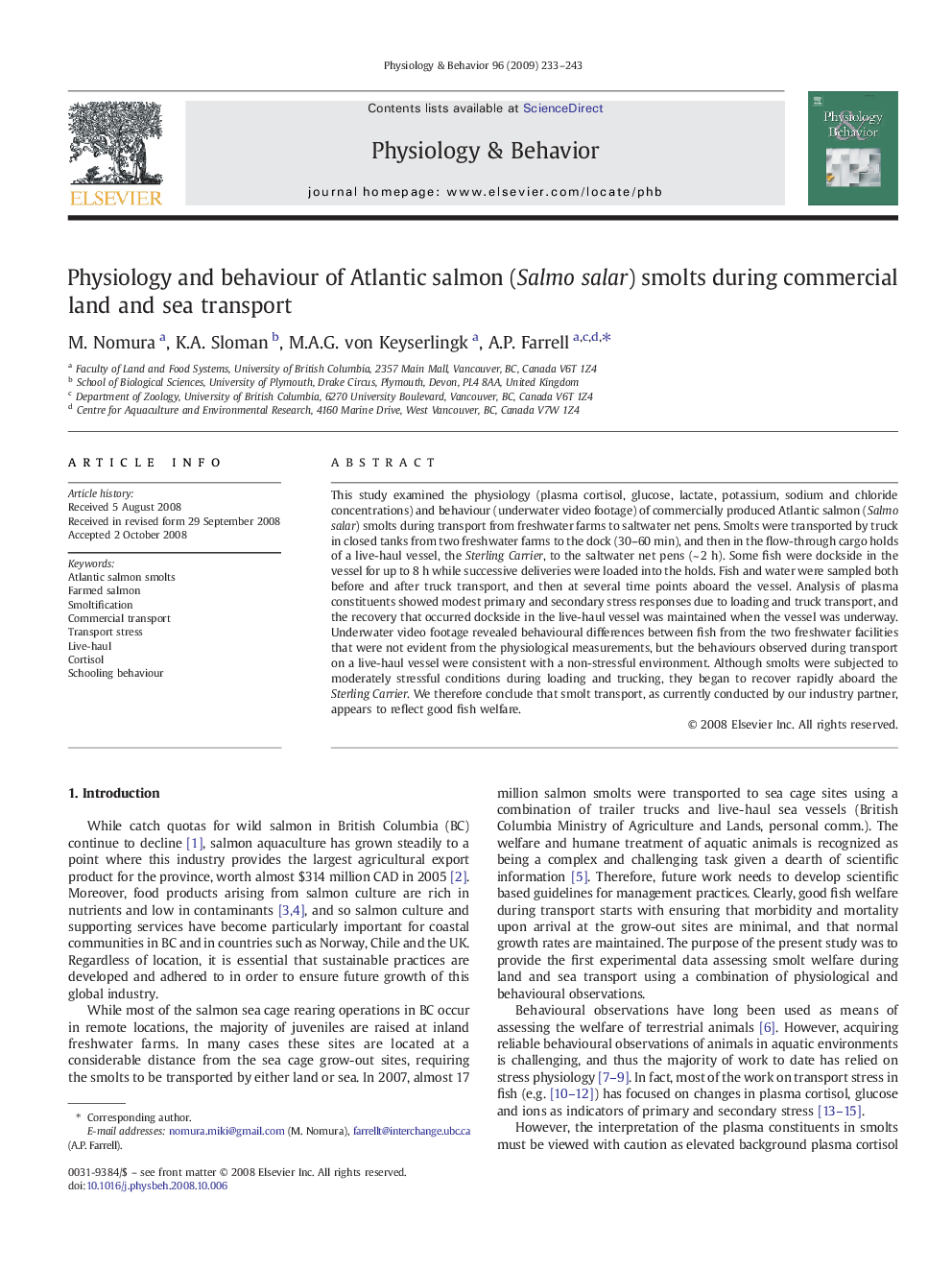| Article ID | Journal | Published Year | Pages | File Type |
|---|---|---|---|---|
| 2845215 | Physiology & Behavior | 2009 | 11 Pages |
This study examined the physiology (plasma cortisol, glucose, lactate, potassium, sodium and chloride concentrations) and behaviour (underwater video footage) of commercially produced Atlantic salmon (Salmo salar) smolts during transport from freshwater farms to saltwater net pens. Smolts were transported by truck in closed tanks from two freshwater farms to the dock (30–60 min), and then in the flow-through cargo holds of a live-haul vessel, the Sterling Carrier, to the saltwater net pens (~ 2 h). Some fish were dockside in the vessel for up to 8 h while successive deliveries were loaded into the holds. Fish and water were sampled both before and after truck transport, and then at several time points aboard the vessel. Analysis of plasma constituents showed modest primary and secondary stress responses due to loading and truck transport, and the recovery that occurred dockside in the live-haul vessel was maintained when the vessel was underway. Underwater video footage revealed behavioural differences between fish from the two freshwater facilities that were not evident from the physiological measurements, but the behaviours observed during transport on a live-haul vessel were consistent with a non-stressful environment. Although smolts were subjected to moderately stressful conditions during loading and trucking, they began to recover rapidly aboard the Sterling Carrier. We therefore conclude that smolt transport, as currently conducted by our industry partner, appears to reflect good fish welfare.
